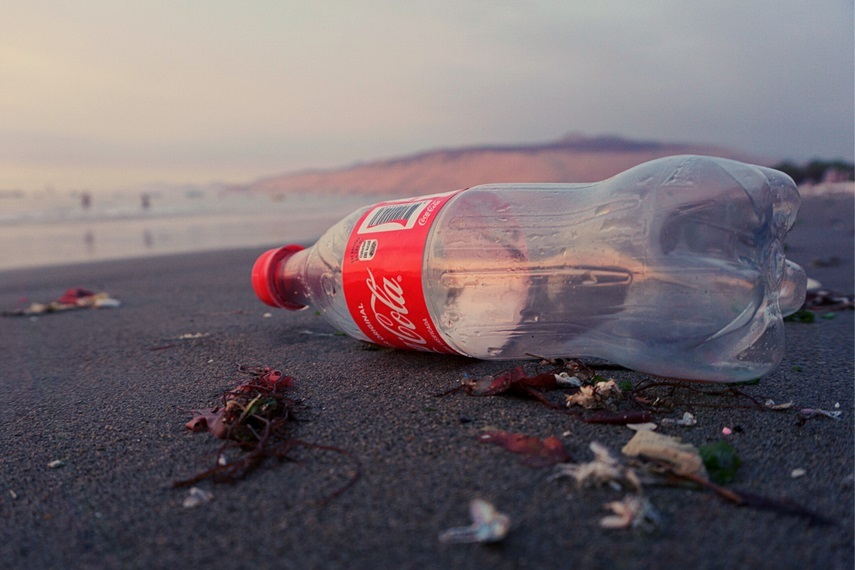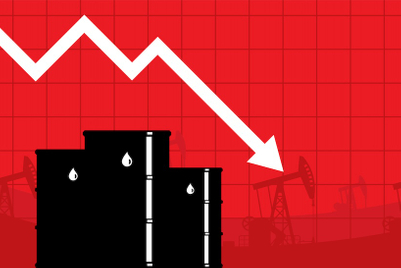
The Coca-Cola Company has defended its decision to sponsor the 27th annual United Nations Climate Change Conference (COP27), claiming it is “prepared to do [its] part” in the fight against climate change.
The sponsorship deal has been slammed by climate activists including Greenpeace, which said Coca-Cola produces 120 billion single-use plastic bottles a year and has ranked the drinks company as one of the world's top plastic polluters.
Responding to the criticism, Coca-Cola said it shares “the goal of eliminating waste from the ocean and appreciates efforts to raise awareness about this challenge”, pointing to its “ambitious goals” that start with “helping to collect and recycle a bottle or can for every one we sell – regardless of where it comes from – by 2030”.
It claimed it is committed to do more, faster, so it can grow its business the right way, which is why it will “continue to partner with other businesses, civil society organisations, and governments to support cooperative action on this critical issue”.
The Coca-Cola Company has indeed recently raised €500m for sustainability projects. However, alongside PepsiCo, it has been named the top plastic polluter for four years running.
COP27 takes place in Egypt's Sharm-El Sheikh next month and, given that previous sponsors include Unilever, which is currently ranked the world's third worst plastic polluter, in 2016 and Jaguar Land Rover at COP26 last year, several environmental activists are now questioning the legitimacy of the climate conference.
“Coca-Cola sponsoring COP27 is the last nail in the coffin for the conference,” John Brown, founder and chief executive of Don't Cry Wolf, insisted. “It's clear now that it's little more than a political posturing party, sponsored by some of the most polluting brands on the planet.”
He highlighted that recent research commissioned by the PRCA Misinformation in the Climate Crisis strategy group, found that more than half of the UK population did not know what the outcome of COP26 was, and more than a third said that COP doesn't affect them.
“All in all, Coke can keep COP as far as I'm concerned. We have to instead embrace meaningful community-based action and brands brave enough to do that are the ones that will win consumer hearts and minds,” Brown said.
Kit Speedwell, a spokesperson for the Brandalism network, said: “Coca-Cola is one of the world’s top polluters, embroiled in water scandals, human rights abuses and plastic pollution. Placing them at the heart of the COP27 climate summit shows the rot at the centre of climate politics and undermines the intentions of the conference from day one."
Chris Norman, founder of The Good Agency, noted that through the sponsorship, COP27 is shining a bright light on the company's “woefully inadequate response to the environmental damage they are causing”.
He argued that The Coca-Cola Company's pledge to reduce 25% of packaging to be reusable by 2030 is “just one example of falling catastrophically short of the level of action required to address the damage its plastic packaging is causing".
He added: "It gives its pedestrian pace of change a veneer of acceptability.
"Nothing short of Coca-Cola announcing it is abandoning the use of virgin plastic and a massive investment to clear up the pollution its packaging has caused could justify its involvement in COP27."
The sponsorship deal has also received backlash on Twitter. Ben Essen, Iris’ global chief strategy officer and climate advocate, said the main reaction is akin to “Putin sponsoring a conference on Ukraine independence-type thing”.
He questioned why Coca-Cola’s response focuses on emissions, not waste. “If COP27 is primarily about emissions reduction and climate adaption (over waste or biodiversity), it may be that the Eygptian hosts may have felt it could sign up a company that turns oil into plastic in a way it couldn’t with one that just burns the stuff. Of course, this kind of siloing is dangerous and means missing the point of the crisis.”
More optimistically, he said, is the idea that the world needs big business to take Net Zero transformation seriously. As recently as January 2020, Coca-Cola’s head of sustainability, Bea Perez, confirmed at Davos that the brand would not ditch single-use plastic bottles because people "still want them”.
Essen added that the brand now has “challenging ambitions in building a circular ecosystem where a bottle is collected and recycled for every bottle sold by 2030".
He continued: "Turning billions of consumers of disposable drinks into participants in a circular system requires a massive transformation in the marketing machine and the world’s biggest ever behavious change programme. As a marketer, this is the kind of challenge I would love to see on my next client brief.”
Campaign has contacted COP27 for comment.
(This article first appeared on CampaignLive.co.uk)


.jpg&h=334&w=500&q=100&v=20250320&c=1)
.jpg&h=334&w=500&q=100&v=20250320&c=1)


.jpg&h=334&w=500&q=100&v=20250320&c=1)

.jpg&h=334&w=500&q=100&v=20250320&c=1)


.jpg&h=334&w=500&q=100&v=20250320&c=1)




.jpg&h=268&w=401&q=100&v=20250320&c=1)
.jpg&h=268&w=401&q=100&v=20250320&c=1)

.jpg&h=268&w=401&q=100&v=20250320&c=1)
